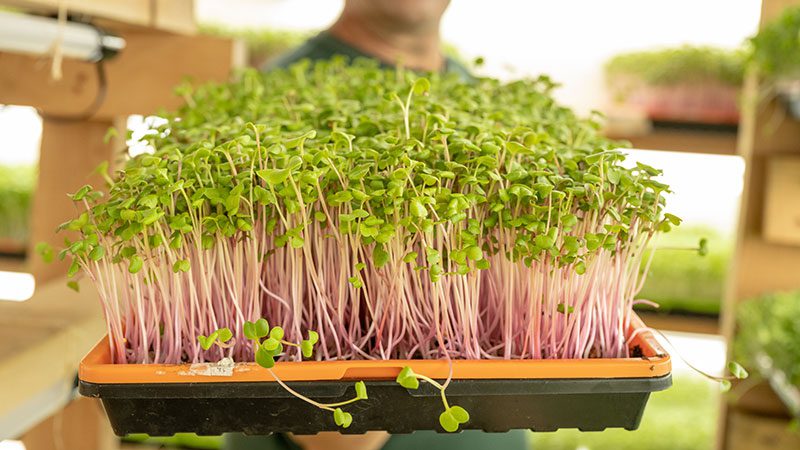Washington farms get greener with 2025 Tilth Alliance grants

Hop Frog Farm is a sustainable farming grant recipient
From soil health to solar power, 70 Washington state farms will benefit from the 2025 sustainable farming grants awarded by the nonprofit Tilth Alliance.
The annual grants from the Washington State Organic and Sustainable Farming Fund support a remarkable array of projects meant to improve the economic viability, social impacts and/or environmental sustainability of farms statewide.
A solar-powered grain bin at Spotted Frog farm in Olympia, for instance, will reduce dependence on fossil fuels and reduce food waste at the pasture-raised egg farm.
Three sheep farmers in the San Juan Islands will share new equipment to turn waste wool left over from shearing into wool pellets that would provide a new source of income and also improve the health of local soils. A grant will help Bahati Farming in Kent improve production by purchasing tools to make the farmwork less physically grueling for the one-woman operation, plus adding compost and landscape fabric to help control weeds without tilling the soil.
At Bright Ide Farms in Orting, new irrigation equipment will help the farm deal with dryer, hotter summers, improving its pastures and providing a natural green firebreak. Marrowstone Mushrooms of Seattle got help with a new climate control system that will save electricity and water, reduce food waste, and allow the company to grow a wider variety of mushrooms.
“We are incredibly honored to continue offering this essential financial support to Washington farmers,” said Rae Russell, a Farm Program Manager at Tilth Alliance, in a press release. The nonprofit awarded $541,740.38 in grants this year, with an average around $8,000 per grantee. PCC contributed $73,000 toward the grants as part of the co-op’s climate commitment, directed to projects that reduce greenhouse gas emissions, sequester carbon, reduce tillage, increase the climate resilience of the farm, improve on-farm soil health, preserve water quality and related practices. Rebecca Robinson, PCC’s quality standards manager, served on the grant review committee.
“At PCC, we care deeply about supporting a food system that heals the earth, and we’re proud to invest in farmers who are working every day to live out regenerative values on the land they steward,” said Mike Wenrick, the co-op’s Director of Purpose. “Through the Washington State Organic and Sustainable Farmer Fund, PCC and other partners are investing in projects that protect soil and water, strengthen farm resilience, reduce emissions, and restore the ecological balance our food system depends on.”
Which farms received Tilth awards?
Most awardees are either certified organic or follow organic practices, according to Tilth. The majority grow diversified vegetable crops; the rest include mushroom cultivation, orchards, fiber farming, poultry and livestock. Nearly 70 percent of awardees belong to historically underserved communities, including recipients who are BIPOC, immigrants, veterans, LGBTQIA+, and women sole proprietors. The grants can be lifesaving for these small and midsize farms who typically struggle to access grants.
Many of the 2025 grants focused on soil health, saving water and sharing knowledge and resources with the broader farming community. Some are familiar names to PCC members and shoppers: A grant to Hop Frog Farms will go toward a catchment system to channel rainfall from a historic barn — 3000 gallons for every inch of rain that falls — into an underground cistern to irrigate a planned food forest. Chimacum Valley Grainery, which has connections to Finnriver, is partnering with other local producers on a pilot project to produce local compost for area farmers, to reduce the cost, uncertainties and environmental impact of importing it from elsewhere.
Griffin Berger of Sauk Farms received a grant toward a water conservation program for the farm’s apple orchards, installing moisture probes and irrigation controls to help reduce water waste. The farm will share what it learns to help other regional farms adopt the technology, the application said.
Songbird Haven Farm, which recently established its own farmland in Thurston County after years at Viva Farms, will use its grant to plant perennials and living pathways on its new land, improving the soil and establishing natural windbreaks. Pink Moon Farm, conserved by the Washington Farmland Trust, was awarded a grant to upgrade its irrigation and cover crop systems, allowing it to add another quarter-area in vegetable production and add summer cover crops.
For more details on the annual awards see this page at the Tilth Alliance.
